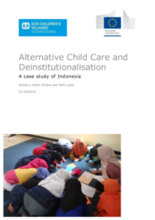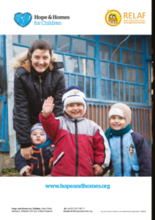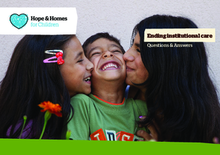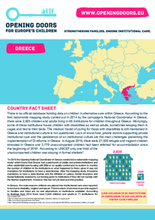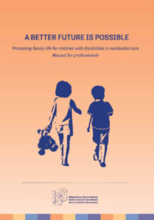Displaying 991 - 1000 of 1482
Five years ago, Child's i Foundation founder Lucy Buck set up a 25-bed 'transitional facility' to prove it was possible to place children in need of care into permanent families. Childs' i Foundation piloted an 'emergency care pilot' to see i
To meet the demand for high quality trainer's training programs in the group care sector, Fairstart Foundation designed an online education program for training groups of caregivers.
The objective of this study was to develop and test an instrument to measure self-representation of youths in residential care in Portugal.
This report is a case study of alternative child care in Indonesia. Research was conducted that found that with an estimate of 8,000 institutional facilities servicing 500,000 children, Indonesia was overly reliant on institutional care.
La presente investigación trata de los jóvenes sin tiempo y cómo trabajar, con ellos y ellas, en un tránsito inclusivo a la vida adulta, especialmente jóvenes que han pasado una parte importante de sus vidas en recursos residenciales del sistema de protección y que cuando son mayores de edad deben dejarlos para salir a la vida adulta, en un tránsito cargado de complejidades.
Décadas de investigaciones comprueban que el crecimiento de un niño en una institución posee un impacto nocivo en cuanto a lo psicológico, lo emocional y lo físico, incluyendo trastornos de vinculación, retrasos cognitivos y en el desarrollo, y una falta de capacidades sociales y para la vida que luego concluyen en múltiples desventajas durante la adultez.
This publication includes common questions and answers on the implications of institutional care and why it should be ended.
This fact sheet provides an overview of the numbers of children in institutional care in Greece.
This manual provides guidance to professionals who work with children with disabilities in residential care.
This volume of the Scottish Journal of Residential Child Care includes a collections of articles, reflections and reviews covering a wide range of subjects from taking a fresh look at leaving care interactions, to exploring the role of storytelling in social care practice.

